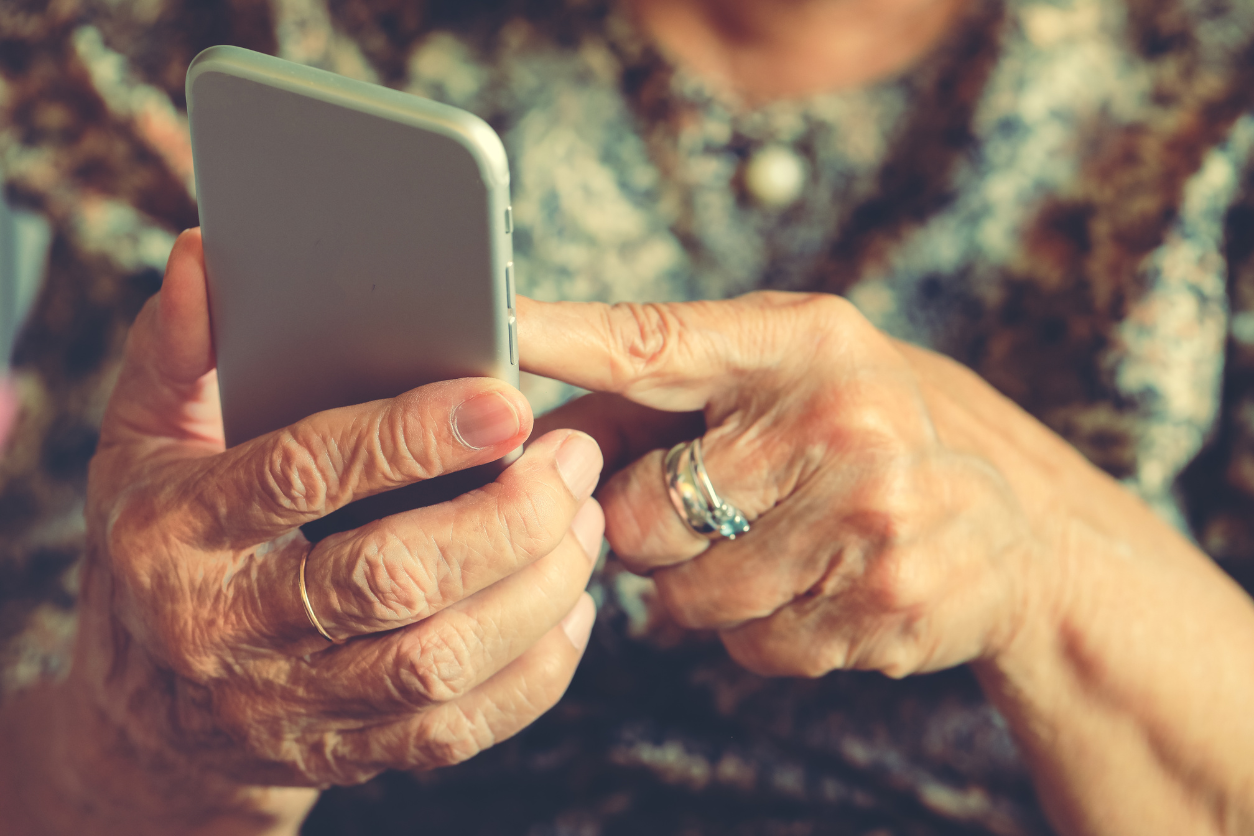
Increased Access to Nature and Outdoor Recreation for People with Disabilities
The U.S. Centers for Disease Control and Prevention (CDC) estimates that 21% of New Jersey adults have some type of disability. Adults with disabilities are more likely to have depression, diabetes, or other health problems. Research has underscored the physical and mental health benefits from access to nature and outdoor recreation. Being outside in green spaces supports an active and healthy lifestyle, which has shown to increase life expectancy, improve sleep quality, reduce diabetes and the risk of cancer. However, research also indicates an inequitable access to nature and outdoor spaces faced by people with disabilities.
This project will conduct research regarding other states’ policies regarding advance access for people with disabilities to nature and outdoor recreation and intend to hold focus groups with people with disabilities to gain input on the specific needs, challenges, and priorities in order to expand access. A public report will be prepared and published to outline state policy challenges and opportunities associated with improving access for people with disabilities to nature and outdoor recreation.

State of Mental Health in New Jersey’s Youth
This study will examine the current state of mental health and well-being in New Jersey’s school-aged youth and investigate best practice models for effective and equitable provision of mental health services. The intended goal is to utilize the results from this study to provide recommendations for state-based solutions to improve mental health services, from identification of at-risk youth through accurate diagnosis, support services, and successful treatment, as well advancing the overall health and well-being for the state’s populace.

Food Waste & Security
As climate change increases its impact on our environment, it is imperative to discover how NJ can respond in its food waste and food security policies. The NJ Policy Lab will partner with the Organics Workgroup of the NJ Climate Change Alliance to conduct research to inform the development of statewide public policy aimed at reducing food waste, contributing to food security, and driving organic wastes away from landfills.
This project will study how other states’ policies address the economic impact of regulatory reform efforts, examine the design of those efforts, and assess the effective stakeholder engagement efforts in other states that contributed to the development of policies and regulatory reform. The outcome of this project will inform emerging public policy related to climate change and its intersection with other societal priorities including food insecurity.

Quality Ratings in Long-Term Care
Despite the State of New Jersey’s efforts to enhance the well-being of its diverse elderly population, including the establishment of a state division on aging, the challenge of poor quality long-term care facilities still persists. This project is comparing the quality of nursing homes in New Jersey to those in other states and assessing how they respond to government quality standards focusing on the role of the overall five-star quality rating. The second objective is to understand how nursing home quality ratings influence citizens’ perceptions of the homes and how this information ultimately shapes their choices.
This research strives to foster a positive cycle of continuous improvement in long-term care by offering policy recommendations to improve the quality of such care in the state.

Reducing Opioid Overdose Risk in New Jersey
Emergency department (ED) visits are common among individuals with opioid use disorder (OUD), and therefore serve as a critical setting in which to engage them in services and link them to continuing care.
This mixed-methods pilot study is integrating analyses of New Jersey Medicaid claims with document reviews, key informant interviews, and policies and programs designed to engage with patients with OUD and/or a history of overdoses.
The study is also examining efforts to increase ED buprenorphine prescribing in New Jersey, which has been shown in clinical trials to increase post-discharge treatment engagement and reduce risk of adverse OUD-related outcomes.

Supporting Aging in Place Senior Housing
The New Jersey Assisted Living Program (ALP) is an innovative housing-plus-services model designed to prevent or delay the institutionalization of low-income senior housing tenants who need assistance with basic activities of daily living. ALPs provide in-home services (covered by NJ Medicaid) that meet the daily health and social needs of residents of publicly subsidized, congregate housing, who would otherwise be clinically and financially eligible for state-financed, high-cost care in skilled nursing facilities.
This project is investigating systematic differences between ALP and non-ALP participants at the individual, organizational, and community levels by using administrative and claims data from the Center for Medicare and Medicaid Services (CMS) on dually eligible New Jerseyans. The project is also seeking to understand facilitators and barriers for ALP implementation by conducting interviews with housing and services providers who are leading ALP implementation within communities across NJ.

Developing a Mental Health Services System for Justice Involved People
This project seeks to use Appreciative Inquiry (Ai) and the Ai summit to develop a transformative system of mental health services for justice-involved individuals in New Jersey.
An Appreciative Inquiry Summit is a collaborative convening of diverse stakeholders to identify strengths within a policy domain in order to shape new and shared visions for innovative, effective, and transformative public policies. The project plans to create a portfolio of recommended public policies, which will inform policymaking processes leading to the creation of new mental health programs and services support for justice-involved individuals on their journey towards recovery and successful reintegration into society.

Emotional Well-Being of NJ Nurses
COVID-19 highlighted the need for nurses to access emotional well-being programs to reduce emotional distress and burnout. In response, the New Jersey Nursing Emotional Well-being Institute (NJ-NEW) launched the Virtual Schwartz Rounds (VSR). This emotional support program provides an online synchronous forum platform that connects nurses in all specialties across New Jersey and encourages nurses to share workplace experiences in a safe environment and allow for more open conversations without fear of repercussions.
This project is evaluating equity in accessing the VSR by conducting a self-administered electronic survey to nurses in New Jersey. The survey includes three main components: (1) demographic and workplace characteristics; (2) perceived barriers and facilitators to accessing emotional support programs; and (3) availability, accessibility, and utilization of other emotional support programs for nurses. These findings will assist in determining whether there is a need to improve access and will provide important information on refining the much-needed emotional support programs across the state.

Opiate Overdoses in NJ
In using data to confront the opioid epidemic, the state of New Jersey is currently implementing several reforms to addiction policy that would benefit from data-driven analysis to evaluate areas of the state to target for resource allocation, planning of new facilities, and public policy development and evaluation.
In collaboration with the Rutgers Urban and Civic Informatics Lab, this project will develop a statewide spatial risk model using informatics or machine learning methods to predict which regions of New Jersey are more susceptible to opioid overdoses. This model will generate findings with policy implications, such as where new addiction treatment facilities are needed and can be most effective as well as how effective existing state policies have been at combatting opiate abuse in communities.

Senior Health Connect
The goal of this report is to bridge the digital divide among older adults—a persistent gap in access to broadband services, internet-ready devices, and proficiency in their use—while addressing health inequities exacerbated by the COVID-19 pandemic in New Jersey.
This research will be conducted through several phases, which include training cohorts of seniors on device and internet use and engaging participants in a guided health literacy program. The Senior Health Connect (SHC) training curriculum and implementation strategy was developed with the input from community residents and other community-based stakeholders, senior serving organizations, RU-N’s Office of Information Technology (OIT), faculty from the School of Public Affairs and Administration, and students from various academic disciplines.

Telehealth
The COVID-19 pandemic led to the significant use of telehealth. However, the transition and expansion of telehealth during the pandemic posed challenges to both patients and providers. As achieving health equality is vital to reducing health disparity, the New Jersey Policy Lab is prioritizing healthcare research that informs policies related to providing care through telehealth to the state’s most vulnerable populations.
Two projects will serve to further expand the understanding of telehealth usages in New Jersey. One project will focus on the healthcare delivery systems in New Jersey to understand the status of telehealth use and the policy challenges that exist for continued provision of telehealth services post-COVID-19. The second project aims to understand the use of telehealth in safety-net hospitals and federally qualified health centers in New Jersey and to identify challenges faced in its implementation during the COVID-19 pandemic and continuation of such services post-COVID-19.This research will inform recommendations to state policymakers on New Jersey telehealth laws and reimbursement policies.

Unemployment Insurance and Mental Health
The COVID-19 Pandemic has caused record rates of unemployment in NJ and nation-wide. Joblessness is known to diminish mental health status, and, in turn, diminished mental health has been shown to delay labor force re-entry. Improving unemployment insurance recipient mental health is in the interest of both the unemployed individual and the state, as even a small improvement in time to re-employment can lead to substantial savings to the unemployment insurance system.
The New Jersey Policy Lab will partner with the Center for State Health Policy at Rutgers-New Brunswick to use publicly available data from the PULSE Household Survey to address important questions about the feasibility of offering mental health supports through the unemployment insurance system. The purpose of this project is to examine potential gains for unemployment insurance recipients and the state from adding mental health supports to the array of services offered through New Jersey’s unemployment insurance system.
